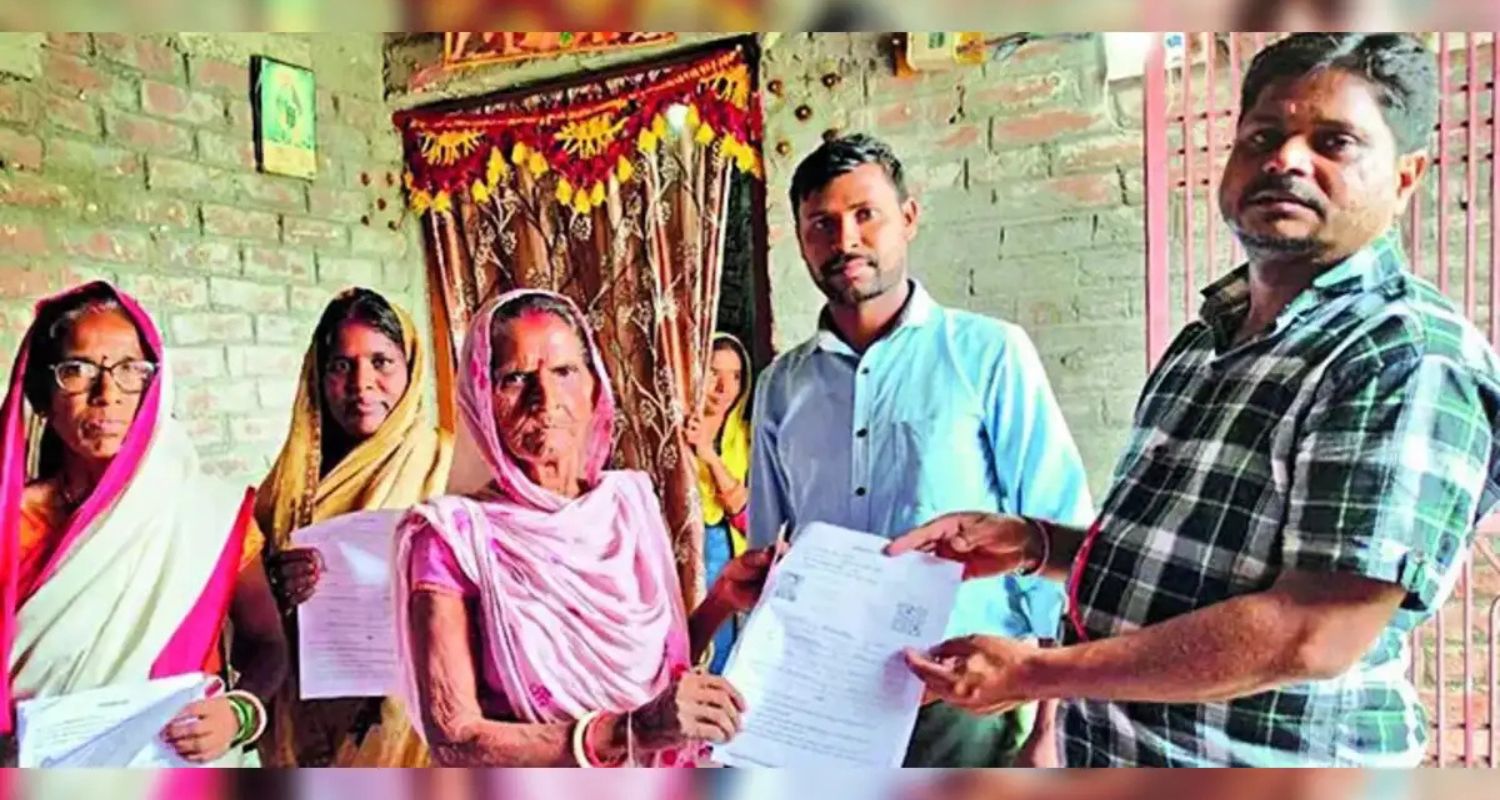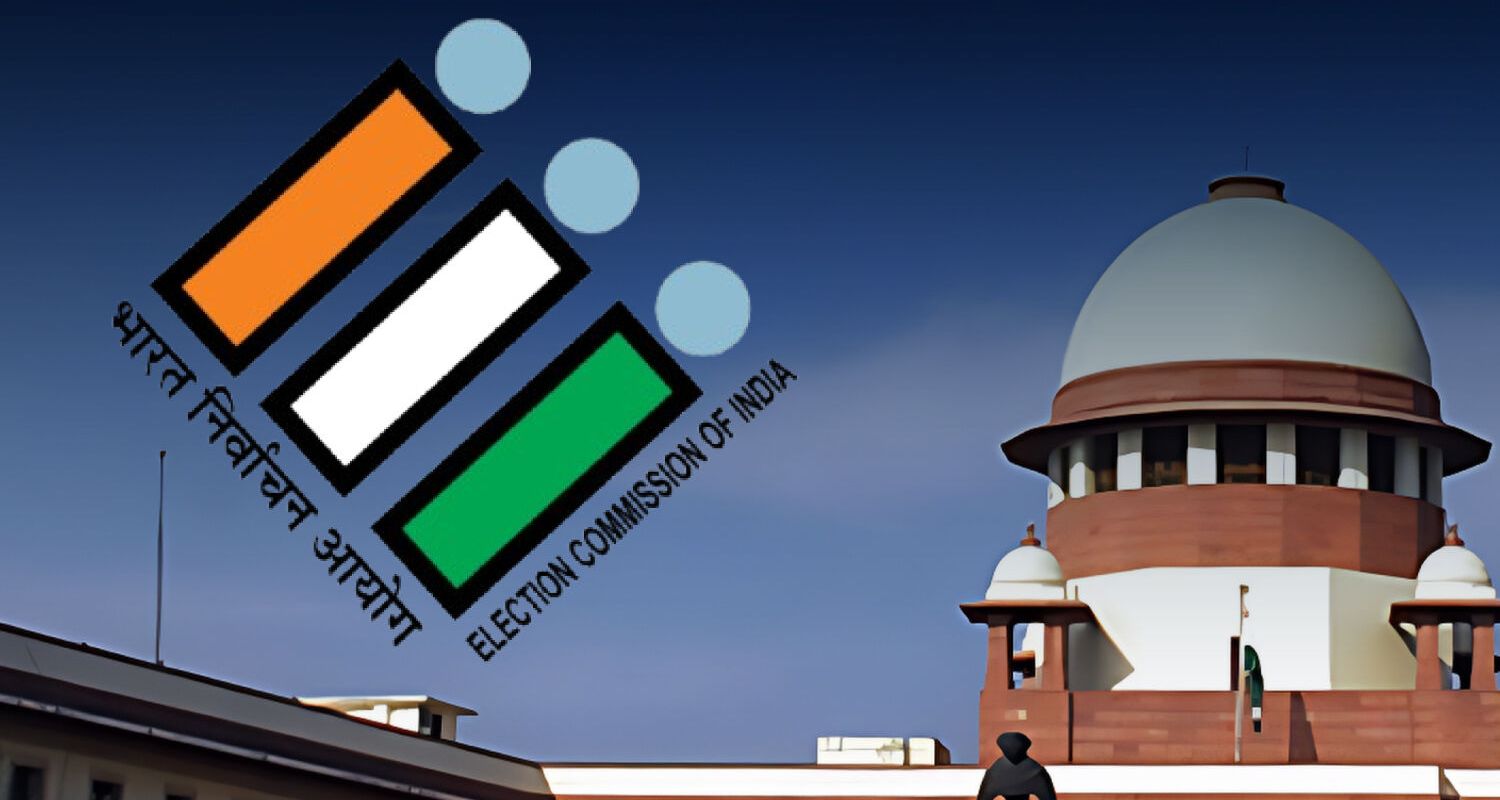The Election Commission of India (ECI) on Tuesday defended its ongoing Special Intensive Revision (SIR) of electoral rolls in Bihar, telling the Supreme Court that Aadhaar, voter identity (EPIC), or ration cards cannot be treated as conclusive proof of voter eligibility. While emphasising its constitutional responsibility, the Commission asserted that it holds the authority to seek evidence of Indian citizenship as part of its mandate to ensure electoral integrity.
The Election Commission of India (ECI) contended in a thorough affidavit submitted to the apex court of India that it has the full authority to supervise and guide every facet of the electoral process, including the creation of voter rolls, under Article 324 of the Constitution. According to the Commission, this includes evaluating eligibility based on Indian citizenship, which is mandated by Article 326. It clarified that a person’s inability to prove citizenship for the purpose of voter registration does not imply loss of citizenship itself.

This affidavit was submitted in response to a series of petitions filed by Opposition MPs and civil society groups, who have challenged the legality, timing, and method of the SIR exercise. The Supreme Court, during its July 10 hearing, had agreed to examine the matter and urged the ECI not to finalise draft rolls until further orders. The court also suggested considering Aadhaar, EPIC, and ration cards as acceptable documents for voter eligibility.
The ECI, however, seemed to dismiss this idea, arguing that the 11 documents that are currently being accepted are merely representative and not all-inclusive. According to Article 326, the Commission reaffirmed that Aadhaar is merely identification documentation and not evidence of citizenship or eligibility. It recognised that Aadhaar could be used as a supporting document but not as evidence on its own. Similar to this, ration cards were considered untrustworthy because of the prevalence of fraudulent documents, though local Electoral Registration Officers (EROs) may choose to accept them in certain circumstances.
Additionally, the Commission rejected the use of EPIC as conclusive evidence, claiming that voter ID cards are the result of previous rolls and that depending on them would negate the goal of a comprehensive and new revision. The SIR process, it explained, is a de novo revision intended to verify voter eligibility from scratch, not carry over data from previous records.

Also Read: Over 6.6 cr Bihar voters file forms before SIR deadline
The NGO Association for Democratic Reforms (ADR) and opposition leaders and petitioners, including MPs Manoj Jha, KC Venugopal, and Mahua Moitra, have expressed concerns that the SIR could lead to widespread disenfranchisement, especially for marginalised, impoverished, and migrant communities who might find it difficult to produce documentary proof. They also took issue with the exercise's timing, pointing out that it coincided with the Bihar assembly elections and that the three stages of enumeration, claims and objections, and final publication were all completed in a shortened 30-day period.
The ECI denied these claims, calling the petitions unfounded, premature, and based on unsubstantiated media reports. The Commission argued that it has received broad political support for the SIR and claimed that all political parties have appreciated the necessity of the exercise and have been cooperating with it.
Also Read: Names of foreign nationals found in Bihar voter list
The ECI reported that as of July 18, enumeration forms had been collected from over 7.11 crore electors in Bihar, which constitutes approximately 90.12 per cent of the state’s total electorate of 7.9 crore. When accounting for deceased individuals, voters who have permanently shifted, and duplicate enrolments, the coverage rises to 94.68 per cent, according to the affidavit.
The claim that only the central government has the authority to decide who is eligible to be an Indian citizen has been categorically denied by the Election Commission of India (ECI). The Commission referred to this interpretation as "patently erroneous," citing the Citizenship Act of 1955. The ECI clarified that it is well within its constitutional and legal authority to request that people claiming Indian citizenship by birth submit pertinent documentation when applying to be added to the voter rolls, even though it acknowledged that the Centre has the sole authority under Section 9 of the Act to make decisions regarding foreign citizenship.
Also Read: CPI(ML) questions EC's claim on foreigners in Bihar voter list
The Commission also cited the larger body of law that backs up its position. Sections 16 and 19 of the Representation of the People Act, 1950, as well as Articles 324 and 326 of the Constitution, give the ECI the authority to guarantee that only eligible Indian citizens are registered to vote. While Article 324 assigns the ECI the duty of supervising elections and keeping accurate electoral rolls, Article 326 clearly states that voting rights are reserved for Indian citizens who are 18 years of age or older. Sections 16 and 19 of the RP Act lay out the specific criteria for voter registration, including proof of age, Indian citizenship, and ordinary residency.
Also Read: ECI: 86.32% enumeration forms collected in Bihar SIR drive
In short, the ECI emphasised that verifying voter eligibility — including citizenship — is not just its right, but its duty under the Constitution and the law. Importantly, the Commission reiterated that the inability to furnish proof of citizenship for voter registration purposes does not equate to the cancellation of citizenship. The SIR, it stated, is a purely inclusionary exercise aimed at ensuring the purity and accuracy of the electoral rolls. “Determination of non-eligibility under Article 326 will not lead to cancellation of citizenship,” the affidavit stated.
The ECI also addressed concerns raised by the court about possible exclusion of eligible voters, assuring that safeguards and due process were in place. It stated that no name would be eliminated without following the correct protocol and natural justice principles. It insisted that the SIR's goal is to eliminate entries that aren't eligible and guarantee that only eligible individuals are listed on the voter rolls.
Finally, the ECI reminded the Supreme Court that the right to vote is not an unqualified fundamental right under Articles 19 or 21, but rather a constitutional right under Article 326, governed by prescribed qualifications. The matter is scheduled to be heard next by the Supreme Court on July 28.
Also Read: Ahead of Monsoon session, INDIA Bloc parties hold virtual meeting




